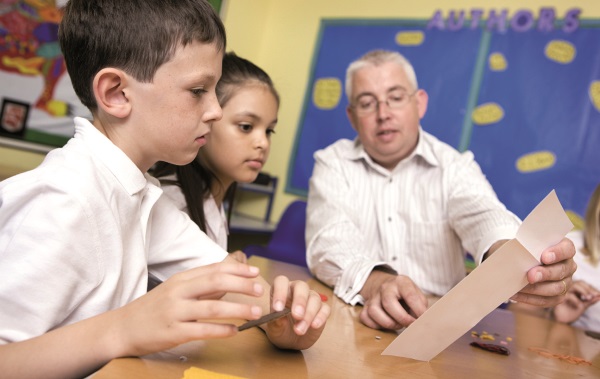Progress is a word I cling to like an umbrella in a downpour. If my kids aren't making progress or progress at the right pace, it can be back to square one.

Progress. It sounds like something out of an election campaign. In fact, Al Gore used it in 2000 as his presidential campaign slogan, ‘Prosperity and Progress’. As good as prosperity is, it's not what I 'm interested in when I walk into a meeting with my kids’ teachers and professionals.
When your child doesn't develop according to 'the norms', their development and wellbeing can very quickly seem to take over your life. Your parenting adapts, your home adapts, and you have enough paperwork to build extra walls in your house. And their education adapts... at least that's what we all hope for.
For many children with special educational needs (SEN), this last part can be very challenging. In addition to the difficulty of asking for, agreeing on and getting the appropriate support for your child, this also needs to be monitored.
As a parent, this feels like a way of ensuring that the school and borough are meeting their legal obligations as set out in the statement of special educational needs or EHCP. This in itself can be cause for anguish. But even if all this goes according to plan it can still go wrong.
Because of progress. When needs are so specialised, it’s easy for them to be too specialised and not fit, creating a situation where progress is being prevented or progress is too slow for the cohort of the setting.
In the first few weeks back at school this year, I've had no less than six school and medical meetings that have all impacted on my boys’ education. This has included an IEP meeting for David, who is five and a statement annual review for Anthony, who is eight.
David is in a specialist setting attached to a mainstream school. It is extremely sought after and always full. At his IEP meeting, our applied behaviour analyst told us David had made the best progress in his class.
What a relief. But don't be fooled, David is still pre-verbal and still fairly self-directed. He is, in fact, repeating his reception year in the unit in the hope that he continues to make as much progress and can access appropriate levels of mainstream education come Year 1.
Despite making the best progress in his class, if he doesn't continue he may find himself unable to integrate and as such become less suitable for the unit. How I fear the next year for my son, who is making 'excellent' progress, but possibly doing so too late.
Anthony is at the bottom of his mainstream school class for almost everything. The work is differentiated for him and he has full-time learning support assistance. The difference is that Anthony's progress has been steady and, I'm relieved to hear, he hasn't fallen any further behind.
He's keeping up and no one has any worries that his setting is not suitable. Thank goodness.
I know several children on their second placement before getting to junior school. I know of another child who is nearly eight and has shockingly been in as many placements!
It is strange that, as a parent, I'm more worried about the child who has made the best progress in the year than the one who is only just keeping up. At least I'm in the position where my children have been granted support and are in settings that are keeping good records of their progress.
Student passport templates are a good way to record vital information about access arrangements, additional support information as well as data and attainment details to ensure a child-centred approach.
In some ways after talking through what's happened or going to happen with my boys in these school meetings, this simple word can turn the whole point of the conversation. It's one that needs to be handled carefully and delicately by all those involved.
I'm holding onto the word in what can feel like ceaseless rain, making progress without my umbrella impossible. I hope all those in the same meeting are aware of its double meaning.
That while one of my kids may have difficulty 'moving towards the destination' required to stay in his setting, that 'progress' is also a verb, and that in the meantime they should each be doing all they can, including what is legally required to help them both 'thrive' and 'flourish' in their unique and wonderful ways.